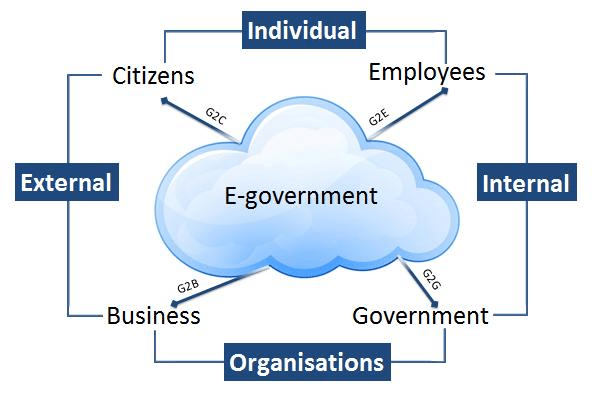I have been working as an e-Government Advisor to the Nigerian government with the Federal Ministry of Communications and Digital Economy (FMCoDE) since February 14.
Recently, I received rent from a store that I own in Korea and processed tax return and tax invoice issue with a smart phone here in Nigeria.
I was able to handle tax affairs right here in Nigeria without going to Korea’s tax office because Korea’s e-government system was well established.
If the e-government had not been established in Korea, I would have had to fly to the Korean tax office to report additional taxes and file tax bills with handwritten letters to tenants.
With the establishment of an e-government, the government will be able to work with precision even with less time and efforts.
In addition to the home tax service I have used, the e-government service is an integrated platform service that can apply and issue key services of each agency in one place such as Gov24 service, Pan-Government integrated business processing system (On-nara) service to develop and spread a standardized government business processing system.
People can communicate with the government on any inconveniences or problems that need to be fixed via e-People service, while providing avenue for online discussion between the people and the government, so that people can communicate on a daily basis and participate in the policymaking process. An integrated financial information system that performs the entire financial process online and generates useful information by linking all financial systems of various agencies such as dBrain (Digital Budget Accounting System of Korea), UNI-PASS service, which supports all customs reporting, tax payment, requirement application, etc. An advanced electronic procurement service that processes procurement services online, and Information Village, such as internet and computers, are established in farming and fishing villages to solve the digital divide between urban and rural villages.
These services can be conveniently used anywhere in the world without any problems if only the Internet connection is possible.
Nigeria also hopes to use these services to shorten and conveniently use the government’s administrative process, and I would like to suggest a desirable direction for the development of the Nigeria e-government, including the success factors of Korea’s e-government.
In summary, amongst the Korea’s success factors include; strong leadership and adoption of state affairs tasks, bold and continuous financial investments, operation of pan-governmental/permanent promotion system and reform of legal system and enactment of e-Government Act, amongst others.
To establish efficient e-government in Nigeria, it is necessary to benchmark the cases of countries that promoted e-government first, such as South Korea, to reduce trial and error.
I would like to make some suggestions on the direction of the Nigerian government’s drive to build an efficient e-government.
- Strong will to drive
For the successful establishment of Nigeria’s e-government, the president’s strong will to push ahead is first important. The government should operate special e-government committees where the president becomes chairman and ministers are members, remove budget, manpower problems and hurdles needed to push ahead with e-government, and coordinate differences between ministries.
If the budget allocation is delayed even after a great plan is made, the business will not be able to pursue itself, and the e-government drive, which is convenient and beneficial for the people, will be delayed and lost direction and drift away.
- Public opinion on e-government initiatives
The National Assembly should also form and operate a research committee to legislate the legal system needed to promote e-government in order to make the legislative-level public for the overhaul of the legal system that is hindering Nigeria’s e-government drive.
No matter how good a new technology system is, the existing legal system reform, which means coordination of various social and political interests, will be useless unless it is preceded by it.
- Designated and operated by the head organization of the e-government
The government should designate an agency to oversee the central affairs of the e-government so that standardized information resources (public services) that can be used by various administrative bodies or the private sector can be designated, modified or canceled by consulting with the heads of administrative agencies, and among them, excellent information resources can be found and selected to distribute and spread to other administrative bodies.
- Cultivating or establishing a professional support agency
Three to four institutions in charge of policy and project promotion and support at a practical level should be fostered or newly established to implement practical policies and projects for the spread of information services and e-government from the expansion and dissemination of national computer networks.
They should also support the operation of e-government initiatives and policy studies, discovery, implementation and management of e-government support projects, support for information system and information resource management, activation of Enterprise Architecture (EA) and support of national data management policies.
- Step-by-step approach from the services available first at this stage
First of all, it is necessary to provide the services available to the public, to show a convenient service, an enjoyable image of government, and to expand the services provided by applying new technologies and upgrading systems in phases.
- Continuous investment in database building
Future societies will become important factors, such as data will play the role of gasoline in cars, and well-established databases will be re-produced with a variety of useful information through big data and artificial intelligence, enabling timely delivery of useful information to the people.
Nigeria’s government should also establish and manage accurate information such as birth, death, and others in a database and digitize all information managed by paper documents. Such database construction and digitalization of documents will take a lot of time and budget, so it is impossible without the government’s strong will to push ahead.
- Implementing Mobile e-Government
With the rise of Smartphone users as well as the emergence of a generation more familiar with mobile than with PCs, Nigeria should provide a foundation for establishing mobile administrative services, enabling safe and convenient mobile services to be implemented so they can handle and communicate their work anytime, anywhere, to improve the government’s effectiveness.
The e-government project is a long journey that requires a huge budget injection and a lot of time. Setting the right direction and not rushing, benchmarking the experiences of the countries that were promoted first, and following each country’s best practices can also be a good way.
Dr.Sung Heo, E-Government Advisor of FMoCDE, Abuja can be reached via: [email protected] <mailto:[email protected]>

 Join Daily Trust WhatsApp Community For Quick Access To News and Happenings Around You.
Join Daily Trust WhatsApp Community For Quick Access To News and Happenings Around You.


